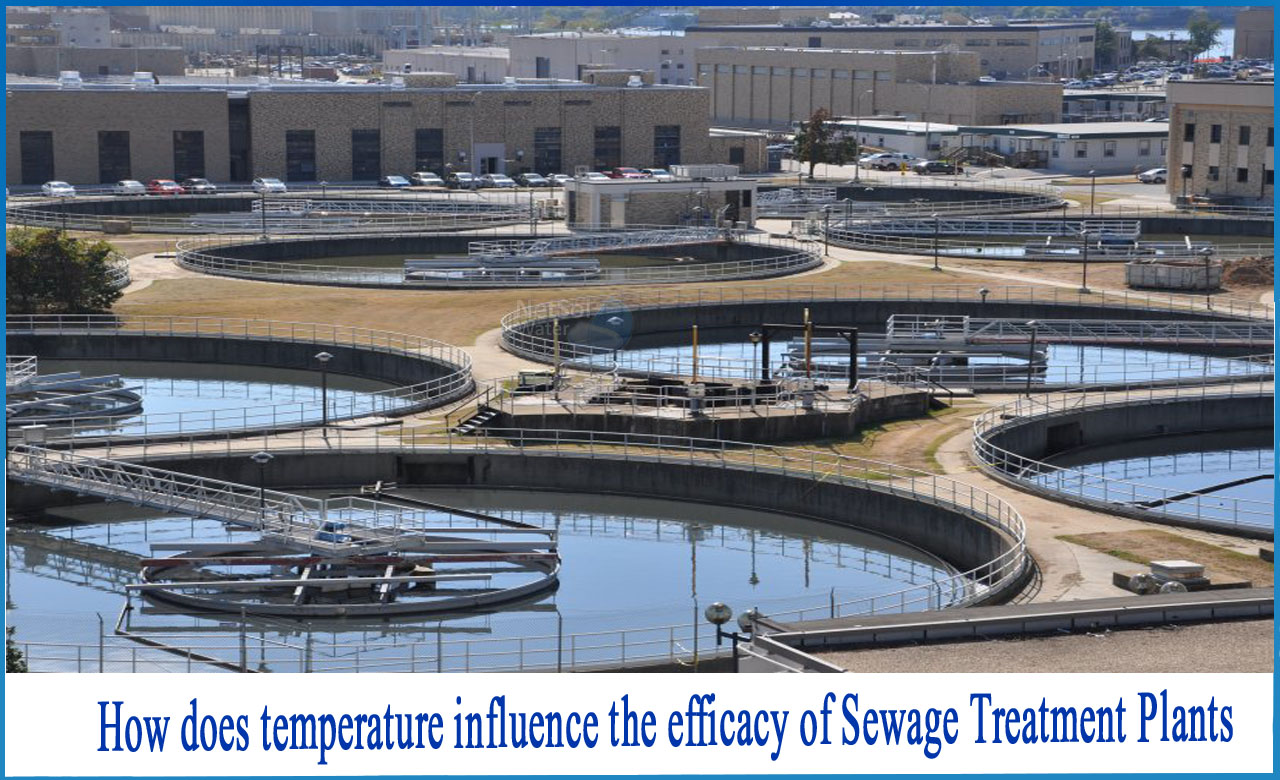How does temperature influence the efficacy of STP?
Sewage treatment is highly reliant on biological activity. The biodegradation of components rises’ when warm wastewater causes microbial activity to double. This implies that at higher temperatures, oxygen consumption is faster, needing more air to be provided. Warmer temperatures cause waste to decompose faster, so it does not need to be stored in the treatment system for as long.
The opposite is also true: in the cold, oxygen consumption is low, therefore air does not need to be delivered as quickly. However, because waste takes longer to breakdown, it must remain in the treatment system for a longer period of time during the cold months.
The practical effect is that aerobic treatment unit procedures should be planned with summer temperatures in mind, whereas detention tanks should be constructed with anticipated winter temperatures in mind.
Temperature Regimes in Wastewater Treatment Plants
There are three temperature regimes:
· the mesophilic, which operates from 4 to 39°C [39.2 to 102.2°F],
· the thermophilic, which peaks at 55°C [131°F], and
· the psychrophilic, which functions at temperatures below 4°C [39.2°F].
Temperature differences throughout the year can have a significant impact on the composition of microbial communities. Each specieshas a minimum, optimal, and maximum temperature that will support growth.
-Psychrophiles grow best at temperatures ranging from 0 to 20°C (32 to 70°F), with an ideal temperature of 10 to 15°C (50 to 60°F).
-Mesophiles, which include the majority of the species frequently found in wastewater treatment operations, grow at temperatures ranging from 10 to 45°C (50 to 115°F), with an optimum temperature of around 30 to 35°C (85 to 95°F).
-Thermophiles, which are found in compost piles and other high-temperature habitats, grow between 40 and 75°C (105 and 165°F), with an optimum growth rate between 55 and 65°C (130 and 150°F).
-Extreme thermophiles are heterotrophic bacteria that can grow at temperatures higher than 100°C (212°F). These creatures are found in extremely specialized settings, such as geothermal vents on the ocean floor, and have not been linked to wastewater treatment methods.
What affect does temperature have on Wastewater Treatment Systems?
1: Microbial activity diminishes as temperature drops. Organic material is biologically and chemically reduced relatively slowly at low temperatures. Microbes employed in wastewater treatment have been discovered to go dormant between 35- and 39-degrees F.
2: Lower temperatures cut biological activity in half for every 50 degrees Fahrenheit drop in temperature, until almost all activity stops at around 35 degrees Fahrenheit, providing more treatment than physical filtering and adsorption in the soil component and physical separation systems. Fortunately, most soil treatment sites maintain temperatures over 35 degrees Fahrenheit, especially in the winter, due to heat from incoming sewage and heat from the surrounding soil.
3: Temperature has a large impact on nitrification and is crucial in the design process in cold areas. Colder temperatures need longer cell residence durations in suspended-growth systems and lower hydraulic loading rates in attached-growth systems due to slower nitrifying bacterial growth rates.
Conclusion
Most aerobic biological treatment procedures work in the mesophilic region for economic and geographical reasons. The rate of the biological reaction increases with temperature in the mesophilic range, reaching a maximum of 31°C [87.8°F] for most aerobic waste systems. Mesophilic organisms will slow down if the temperature rises above 39°C.
The biological floc deteriorates at temperatures exceeding 96°F (35.5°C). Protozoa have been reported to vanish at 104°F (40°C), whereas a scattered floc with filaments has been observed to dominate at 110°F (43.3°C).
What do we have to offer?
Netsol Water is a renowned producer of water and wastewater treatment plants. Based on client feedback and job quality, we are the most demanding organization in the water industry. We have a reputation for being the top commercial RO plant manufacturer, industrial RO plant manufacturer, sewage treatment plant manufacturer, effluent treatment plant manufacturer, and much more. Aside from that, our USP is 24x7 customer assistance.
For any assistance, inquiry, or product-purchase-related questions, give us a call on +91-9650608473 or email at enquiry@netsolwater.com.



